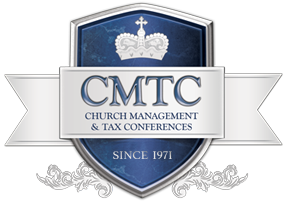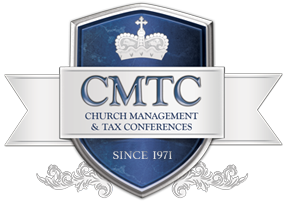As I travel around the nation facilitating Church Tax Compliance Conferences, I am often asked, “I am a Church so why do I need to obtain a 501 (c) (3)?” Many of these same people tell me they were advised on the Internet to not apply for 501 (c) (3) tax-exempt status.
Every week we encounter Pastors and Church leaders that are completely misinformed about what 501 (c) (3) tax-exemption status means and how it can impact their Church. Below I will address some misconceptions and reveal some benefits of 501 (c) (3) status, and why every Church should obtain it for their local House of Worship.
1. Is Approval Required?
Any Pastor who has been told that the Church does not need to obtain 501 (c) (3) approval is misinformed. “Experts” who will tell you that you do not need to seek approval base their information on section 508 (c) (1) (a). Their assessment is flawed. According to Jack Lane Taylor v. Commissioner, January 2000, the United States Tax Court ruled as follows:
“Section 508(c)(1)(A) provides that churches, their integrated auxiliaries, and conventions or associations of churches are excepted from the general rule of section 508(a). Section 508(a) provides that organizations described in section 501(c)(3) and organized after October 9, 1969, are required to apply formally for recognition of their tax-exempt status. Thus, section 508(c)(1) simply relieves churches from applying for a favorable determination letter regarding their exempt status as required by section 508(a). Nothing in section 508(c)(1) relieves a church from having to meet the requirements of section 501(c)(3). In fact, it is clear that when the Commissioner determines that an
The court further ruled:
“Deductions are a matter of legislative grace and taxpayers must satisfy the specific requirements of the deductions they claim.”
Because Mr. Taylor could not prove that the Donee (Indianapolis Baptist Tabernacle) qualified as a religious organization under section 170(c)(2), he was not entitled to a charitable contribution deduction for his donations to IBT.
Indianapolis Baptist Tabernacle is a Church, but because they could not be substantiated as such donations were disallowed as a tax deduction.
Many Constitutional Tax Attorneys agree that section 508 (c) (1) of the IRS code only relieves Churches from applying for a favorable determination letter regarding their exemption status as required by section 508 (a).
This means that if your Church has not obtained 501 (c) (3) approval any donations made to them may not be recognized by the IRS as a legal deduction.
2. Having A 501 (c) (3) Does Not Mean Your Church Will Be State Controlled
Scripture is clear that we are to obey those that have rule over us and that we are to “render to Caesar what is Caesar’s (Romans 13; 1 Peter 2; Hebrews 13). Scripture demands that we are to obey the laws of the land except when those laws violate the commands of Scripture (Acts 5:29). There is nothing in the Internal Revenue Code that will make us violate the laws of God.
The claims of many so-called “authorities” that champion against Churches obtaining valid 501 (c) (3) approval are unfounded. Some of the leading Constitutional Tax Attorneys in the USA advocate for Churches to obtain the 501 (c) (3) status to protect themselves and their donors.
3. Obtaining 501(c) (3) Approval Does Not Force the Church into Complying with Activities It Does Not Condone
Although there is nothing in section 501 (c) (3) that requires Churches to administer or participate in activities to which they do not approve, Chitwood and Chitwwod realizes that every Church must take every precaution NOW to get its House of Worship in order if it is to protect itself. This includes having:
• An iron-clad Church Constitution and By-Laws Manual must contain a Scriptural Conduct and Living Provisions section that prohibits the Church or members from engaging in activities contrary to their written doctrinal beliefs.
• Your doctrinal tenets described in detail.
We Can Help!
More than 500,000 thousand Pastors and Church Leaders across the USA have graduated from our classes. We are the PREMIER Church and Clergy experts in the World with more than 77 years of experience.
If you want peace of mind for your Church and Ministry go to www.cmtc.org and register for one of our Church Management Tax Conferences.

